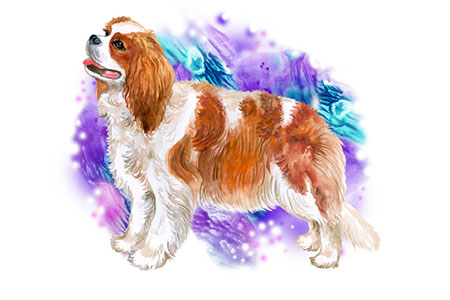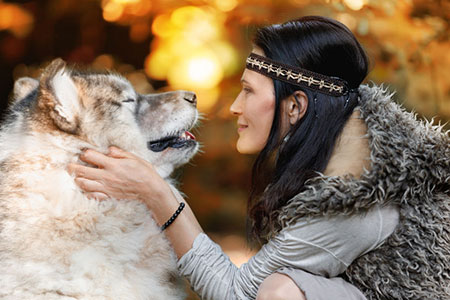grief
Empower Your Life With Ho’oponopono
 I was introduced to the Ho’oponopono prayer several years ago by a friend I met at a meditation group. She told me that it is an ancient Hawaiian custom that can be used to resolve karmic issues in life. So, of course, I tried it, but with mixed results.
I was introduced to the Ho’oponopono prayer several years ago by a friend I met at a meditation group. She told me that it is an ancient Hawaiian custom that can be used to resolve karmic issues in life. So, of course, I tried it, but with mixed results.
It is a simple, yet powerful three-line prayer:
I am sorry. Please forgive me. Thank you. I love you.
I did not fully comprehend it at the time, but even in my lack of understanding, I still experienced some results. Then I reached a point in life where I was experiencing a lot of personal difficulties, and suddenly this simple prayer took on a whole new meaning for me.
It was at a time when I had lost three loved ones in short space of time, and I was going through an intense grieving process and associated life challenges. I figured trying out this prayer again certainly couldn’t hurt. So, for a few days, I made a conscious effort to repeat this mantra in my mind.
I am sorry. Please forgive me. Thank you. I love you.
Then I came across a certification program Ho’oponopono. It is a seminar over multiple days. I had the time and resources to enroll, so it felt like destiny. I then learned a lot more about Ho’oponopono and came to realize it is not nearly as simple as I had originally thought.
The term Ho’oponopono means ‘to make right what is already right.’ The prayer itself is only part of the practice. As a spiritual endeavor Ho’oponopono is about untangling the patterns and blockages that contribute to the challenges we experience in this life. The prayer itself is merely a conduit to experiencing Ho’oponopono, or ‘making right what is already right.’
The Ho’oponopono prayer is intended to move the practitioner into a state of consciousness that is love, free from things like fear, worry, resentment, blame, guilt, criticism, judgment, desire for vengeance, jealousy, and so on.
Working With Raphael, Uriel And Azriel
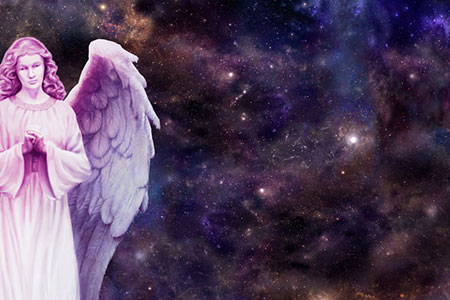 Archangel Raphael
Archangel Raphael
Archangel Raphael is surrounded by a beautiful green glow that has a warm and soothing quality to it. Raphael is a healer of body, mind and spirit. When you call on him it is important to take deep breaths, because you will actually breathe in molecules of his essence. This will serve to heal you from within on a cellular level.
Raphael’s healing energy reprograms our cells with divine light. It can elicit profound and deep healings of physical and mental health issues, but consistency is the key. While his healing presence may cure a benign sniffle in just one session, a health problem that has become embedded in your cellular memory over a long period of time will require multiple treatment sessions with him. So, keep going!
Do not become frustrated if a situation doesn’t resolve itself overnight. In time the balance will eventually tip in your favor and the negative or toxic energy will be released from your mind and body once and for all.
Archangel Uriel
Archangel Uriel feels like a loving ‘grandfather.’ When I sense his presence around a client, it usually signals to me that a heart-to-heart conversation about life is in order.
Finding The Courage To Heal
 All of us will experience some heartache, adversity and grief in our life. It may be a serious health scare, the ending of a relationship or marriage, the tragic loss of a loved one, retrenchment from a ‘secure’ job, sudden bankruptcy, becoming homeless due to a foreclosure, or becoming the victim of abuse and violence.
All of us will experience some heartache, adversity and grief in our life. It may be a serious health scare, the ending of a relationship or marriage, the tragic loss of a loved one, retrenchment from a ‘secure’ job, sudden bankruptcy, becoming homeless due to a foreclosure, or becoming the victim of abuse and violence.
These major setbacks in life can be truly devastating, and the pain and trauma extremely difficult to rise up from again. In such times of loss or trauma, it is vital to allow yourself to feel your true emotions. To effectively process and heal from traumatic events. hardship and bereavement, we must acknowledge our raw feelings. Grief and trauma are deeply private and personal journeys with no rules and no deadlines.
However, do not allow the ego to keep you trapped indefinitely in a place of anger, bitterness, hopelessness, or self-pity. If left unattended for too long, our initial emotional responses to the negative event can become toxic in a way that simply keeps us away from our truly divine self and our future happiness.
Yes, it is always hard work to release intense loss or trauma and move forward. It takes courage, self-awareness, and inner strength. However, if you proceed with faith, trusting and believing that this too shall pass, and that there is a reason for everything, even if you don’t understand it right now, you will ultimately be able to move forward in a healthy and productive way.
No matter what happens to you in life, you will grow stronger and wiser by working through it. Regardless how intense the dark night of your soul may be, move forward step by step, day by day, trusting that you can heal and will become stronger. Focus on self-care and loving yourself and hold the faith that better days are coming into your life. We all deserve to be happy and have inner peace.
The Origins And Journey Of The Soul
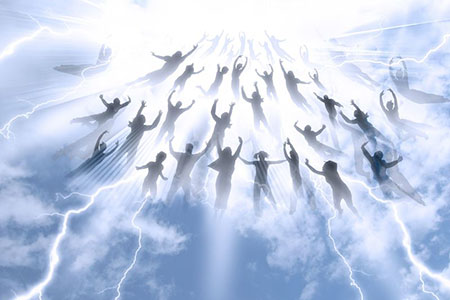 Where do souls come from? Souls are created in a place I know as the Guf, or the ‘Tree of Souls.’ In Jewish mysticism this Tree of Life is located in the Garden of Eden. When this tree blossoms, it produces new souls.
Where do souls come from? Souls are created in a place I know as the Guf, or the ‘Tree of Souls.’ In Jewish mysticism this Tree of Life is located in the Garden of Eden. When this tree blossoms, it produces new souls.
This ‘Treasury of Souls’ is said to be located in the Seventh Heaven. I have seen this place in a dream vision. I could go up to the gold and emerald gates, but could not enter. It is my understanding that all souls are created here by God.
Souls in the Guf are in different stages of evolution. There are young souls and old souls – a diversity of spirit energies waiting to incarnate, reincarnate and ascend.
I can usually distinguish the young, new souls from the wiser and more experienced, because they tend to be a bit ‘wild’ and unrestrained. Young souls are typically eager to experience as many things as possible, and sometimes rush in ‘where angels fear to tread.’ If they are exceptionally gifted, they also need to be guided properly. Many old souls reincarnate to the earth plane to help ground and guide these younger souls.
The old souls also return to provide the physical world with the many things needed for us to thrive, such as advancements in the arts, sciences and technology. Sadly, some greedy, spiritually unconscious humans abuse these gifts to the world for their personal gain. This causes much unnecessary suffering in the world.
When we decide in this life that we would like to have a child, it means our soul wants chooses to take on another soul contract. However, such a soul agreement, like any other contract, is always a two-way process. There cannot be a pregnancy unless the soul of the unborn child also chooses you as parent. In the Guf, souls can decide if they want to join a contract, or not.
Everyone Is An Artist
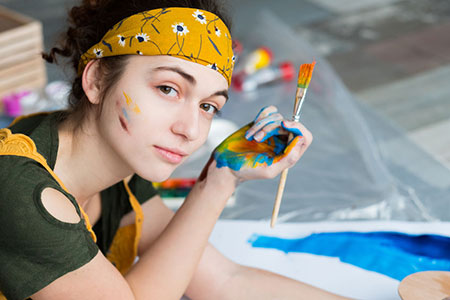 Art is a powerful form of self-expression. It allows us to communicate complex emotions and spiritual concepts through various mediums such as the visual and fine arts, music, dance, acting, creative writing, and so on.
Art is a powerful form of self-expression. It allows us to communicate complex emotions and spiritual concepts through various mediums such as the visual and fine arts, music, dance, acting, creative writing, and so on.
When we are being creative we connect with the subconscious part of ourselves. This can be a powerfully healing experience to help us process and integrate our thoughts, feelings, beliefs and life experiences on a deep level.
When we are children, we don’t have any preconceived ideas about art. If you observe young children, you’ll see this very clearly. They don’t worry about how ‘good’ an artist they are. Most kids just see art as a form of play. They love to draw, or paint, or color, and are typically pretty thrilled with their creations.
So, what happens along the way that we become so self-conscious about our artistic endeavors? It seems to me that at some point most people have had ‘the artist’ within subtly discouraged or silenced. Whatever the case may be,suffice it to say that life takes over at some point and being creative artistically takes a back seat.
“I was never very good at it anyway,” or “I just did it for fun,” are common remarks I’ve heard from people. But what’s wrong with not being very good at something? Especially if it’s fun? Moreover, the benefits of spending time being creative are vast! Art Therapy is growing in popularity and more studies are being done around this modality.
One particular study focused on people with chronic illness or cancer. The researchers looked at the impact visual art activities such as painting, drawing, and pottery had on patients and found that art helped to distract them from thoughts of illness.
Art therapy improved their well-being by decreasing negative emotions and improving positive ones. Depression levels were also reduced, and medical outcomes improved overall. There were also reductions in stress, anxiety, and distress. Further there were improvements in the patients’s spontaneity, expression of their grief, positive identity and social interactions.
